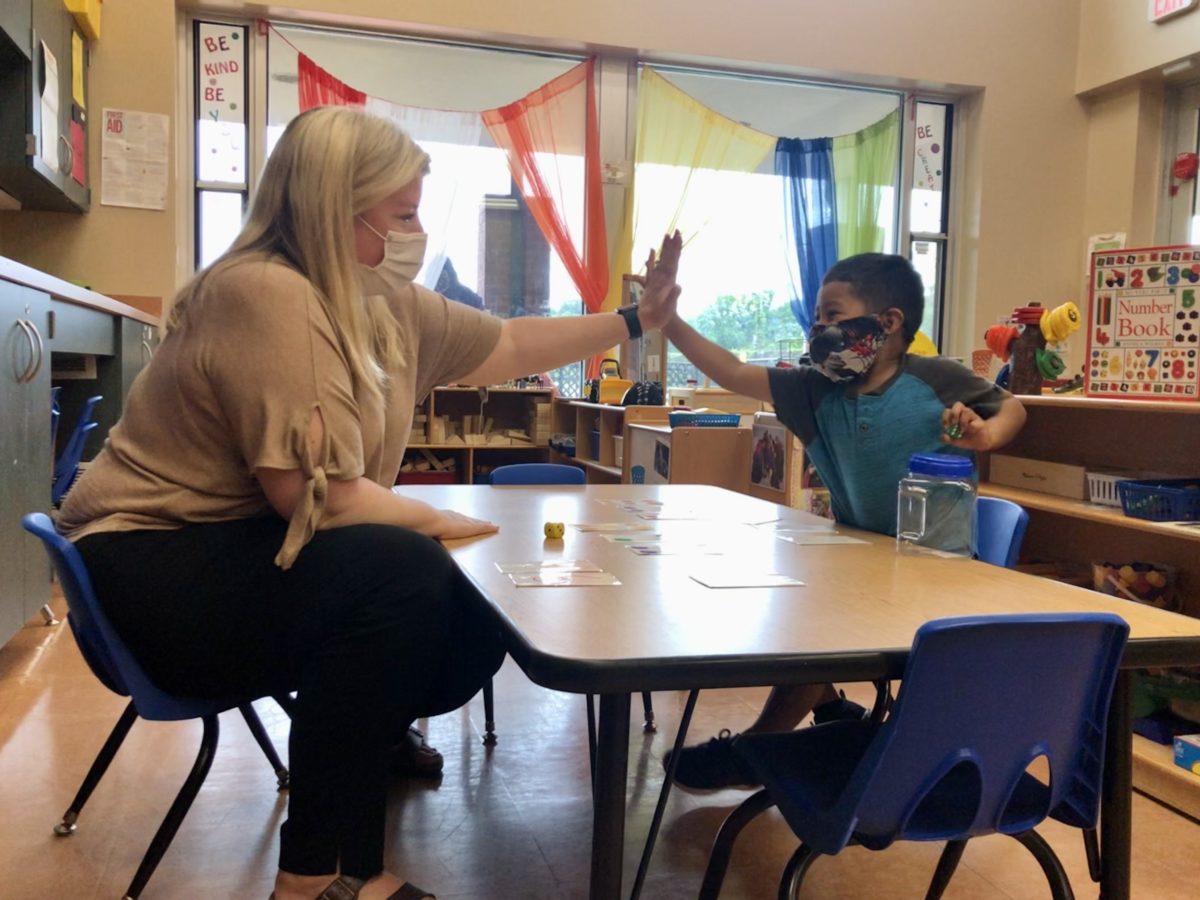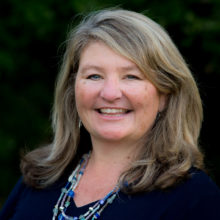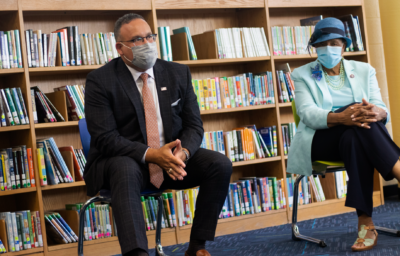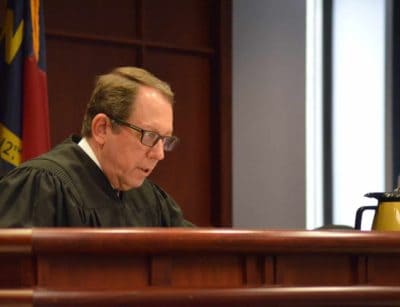
|
|
The following is Mary Ann Wolf’s “Final Word” from the Sept. 18, 2021 broadcast of Education Matters: “A Discussion with North Carolina’s Regional Teachers of the Year.”
Twenty-seven years ago, some of North Carolina’s most poverty-stricken school districts came together to tackle the educational conditions of their children. Together with plaintiff families, they initiated a lawsuit against North Carolina, asserting that the state wasn’t doing enough to ensure all children were able to access a sound basic education — something to which our state constitution specifically says that all children are entitled.
That case is known as Leandro, and it continues to be at the heart of the debate when it comes to funding our schools here in North Carolina.
You might be wondering what exactly does the foundation for a sound basic education look like. The three basic pillars include:
- Students learn in a classroom that has a competent, well-trained teacher.
- Students attend a school with a competent, well-trained principal.
- Adequate and equitable resources are available to ensure that all children’s educational needs are equitably met.
Over the course of the last quarter century, judges overseeing the Leandro case have continued to find that the state is not meeting its constitutional obligation to provide our public schools the resources necessary to ensure our children have what they need to become successful citizens who can compete in a global economy.
Judge David Lee recently ordered our state’s legislative leaders to fully fund the seven components of the Leandro action plan that the defendants in the case — the State Board of Education and the State of North Carolina — have developed to meet our constitutional obligation to provide a sound basic education for all students. That deadline is weeks away, on Oct. 15.
What is particularly interesting is that the seven areas of investment in the Leandro plan are hardly controversial. They include creating systems that ensure a high quality teacher for every classroom and a high quality principal for every school. They require a finance system that leads to adequate, predictable, and equitable funding for every district and an assessment and accountability system with multiple measures.
The Leandro plan includes supports for low-performing schools and districts; a system of early childhood education with access to pre-K; and alignment with and readiness for postsecondary opportunities. These components are tangible, and most people quickly see the connection among the areas identified and a sound basic education for all students.
The challenge, however, seems to be in fully funding these components in alignment with the Leandro case and the now Leandro Remedial Action Plan. Our General Assembly is still in session, working on a state budget that serves as the primary vehicle for funding our public schools. Our public schools had to start operating this fiscal year on July 1st without a state budget in place. However, the timing of this order offers our legislative leaders an opportunity to address the mandate to equitably support our public school students.
Addressing each of these and other critical issues requires an investment in human and fiscal resources. With the appropriate policies and resources, the investments will help address the immediate needs of our schools and districts as we continue to grapple with COVID-19; and they will also support critical areas for long-term efforts to ensure that every child in NC will graduate prepared for college, career, and engaged citizenship.
North Carolina is fortunate to have significant resources available — with a multi-billion dollar surplus — to address the needs of our schools and students, the understanding of what is needed, and the will of education stakeholders and policymakers to enact purposeful and effective policies. We must use this critical point in time to lay the groundwork for accelerating investments and innovations in education for all of our students.
Our schools, districts, and communities do not just need or ask for more money for the sake of having more money. The need, as it has been for decades, is for investments in these specific and other critical areas that research has shown make a difference for students.





